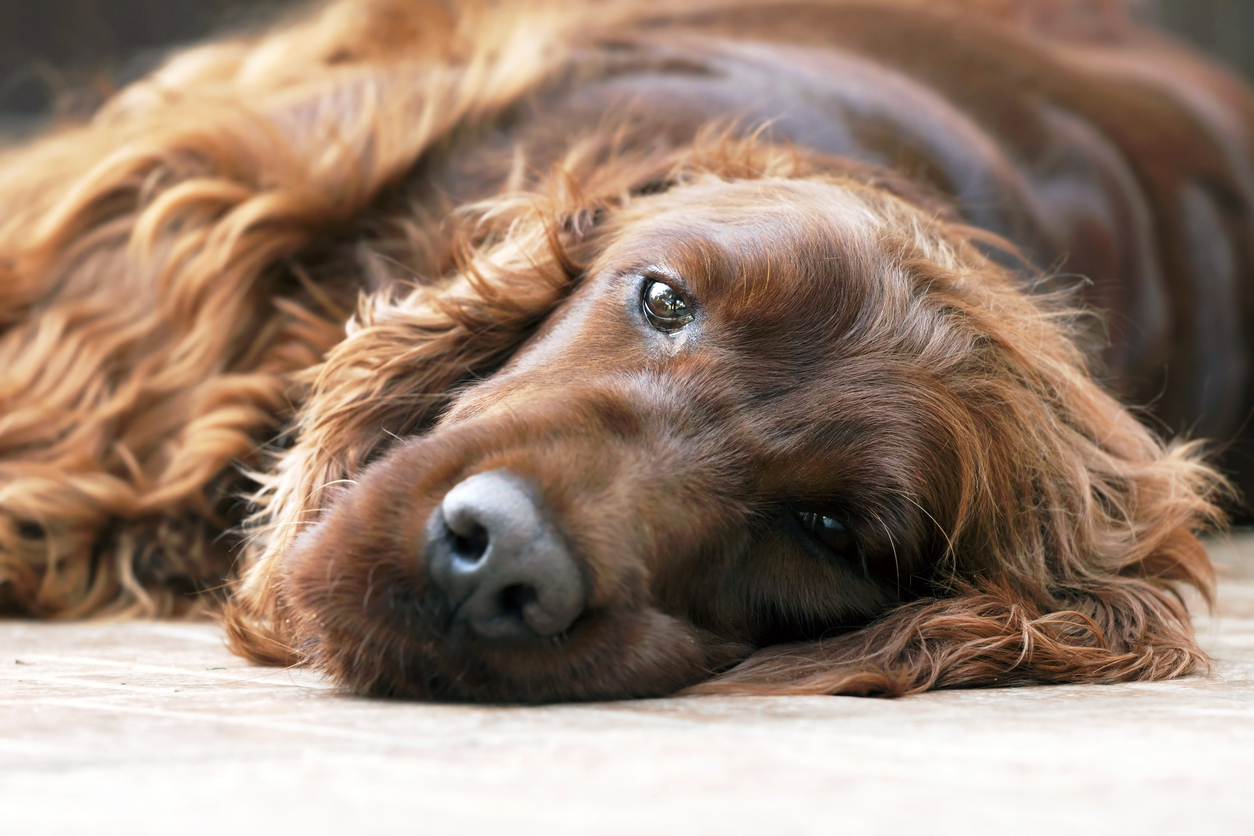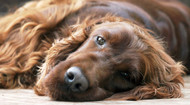
For most dogs, a bath is a necessary evil. Owners know when their dogs need washing, and the event involves filling a tub, providing a good shampoo, brushing the dog before and after, drying out the coat, and cleaning the ears. The task can be difficult when a dog resists your good intentions, and for some a professional groomer is best suited for this task. After the time (or money) spent; however, some dogs still stink! They even stink through the scented shampoos and grooming products used during a blow dry. What could be wrong?
Frankly, dogs smell. People can be repulsed by that familiar dog smell, but dogs don’t care that they stink. However, the smell can become overwhelming and take over your house, your car, and even your clothes. If your dog has that natural tendency to take over your life with offensive odors, look for the source of the stink to contain it.
Your dog’s odor may be coming from its skin. Oily scents can come from perspiration that is released through the paw pads. When dogs scratch, they can spread the oils throughout the coat. They can also pick up odors from the environment. Rolling in the grass or running through a park can accumulate dirt and smells on the dog’s body and feet. When they stroll through your house they can spread the odors onto carpets and furniture. Many of these can be washed off in a bath, but if your dog has skin disease or open sores, odors will persist after the bath.
Another source of odor can be the ears. When bathing your dog, be sure to examine the ears and look for brown, waxy debris. This could indicate the presence of parasites or infection. Clean the ears with commercial solutions or mineral oil. Although your dog is likely to object, keep the oil in place for a few minutes, and massage the ears to loosen any debris. Flush the ears clean, and remove foreign substances with a cotton swab. See your veterinarian to clear infections; an antibiotic drop may be prescribed. Although your dog may fight you on ear cleaning, be persistent. Untreated infections can fester and loss of hearing can occur.
Odors can also develop in your dog’s mouth. Bad breath can come from digestive problems or dental disease. The best attack begins when your dog is a puppy. Brush the teeth daily, or wipe with a terrycloth towel to remove food from the teeth and gums. Professional teeth cleaning from a veterinarian may be occasionally required, but the investment is well placed. Regular dental care can prevent tooth loss, bad breath, and even heart disease.
The most unpleasant source of dog body odor lies in the anal sacs. These glands (located at 4:00 and 7:00 at the dog’s butt) can become impacted and need expression to remove natural fluids. This may be the most obnoxious smell known on earth, so if your dog starts scooting its butt on the floor, head to your groomer or veterinarian to have the glands emptied.
Regular grooming and veterinary care can help keep your dog smelling good, but some breeds may take more effort than others. Bulldogs, with their folds in their skin can develop bacteria and smells. Dogs with fold over ears, like many of the sporting and hound breeds, have a tendency to develop ear infections. Certain coats, usually the shorthaired dogs, tend to have more oil in their coats, and diet can affect a dog’s digestive system. Make sure your dog is fed a
high-quality dog food to improve his coat and skin health and to avoid stomach distress and gas.
You may not be able to completely rid your dog of odors, but good care can make your dog smell his best!
 For most dogs, a bath is a necessary evil. Owners know when their dogs need washing, and the event involves filling a tub, providing a good shampoo, brushing the dog before and after, drying out the coat, and cleaning the ears. The task can be difficult when a dog resists your good intentions, and for some a professional groomer is best suited for this task. After the time (or money) spent; however, some dogs still stink! They even stink through the scented shampoos and grooming products used during a blow dry. What could be wrong?
Frankly, dogs smell. People can be repulsed by that familiar dog smell, but dogs don’t care that they stink. However, the smell can become overwhelming and take over your house, your car, and even your clothes. If your dog has that natural tendency to take over your life with offensive odors, look for the source of the stink to contain it.
Your dog’s odor may be coming from its skin. Oily scents can come from perspiration that is released through the paw pads. When dogs scratch, they can spread the oils throughout the coat. They can also pick up odors from the environment. Rolling in the grass or running through a park can accumulate dirt and smells on the dog’s body and feet. When they stroll through your house they can spread the odors onto carpets and furniture. Many of these can be washed off in a bath, but if your dog has skin disease or open sores, odors will persist after the bath.
Another source of odor can be the ears. When bathing your dog, be sure to examine the ears and look for brown, waxy debris. This could indicate the presence of parasites or infection. Clean the ears with commercial solutions or mineral oil. Although your dog is likely to object, keep the oil in place for a few minutes, and massage the ears to loosen any debris. Flush the ears clean, and remove foreign substances with a cotton swab. See your veterinarian to clear infections; an antibiotic drop may be prescribed. Although your dog may fight you on ear cleaning, be persistent. Untreated infections can fester and loss of hearing can occur.
Odors can also develop in your dog’s mouth. Bad breath can come from digestive problems or dental disease. The best attack begins when your dog is a puppy. Brush the teeth daily, or wipe with a terrycloth towel to remove food from the teeth and gums. Professional teeth cleaning from a veterinarian may be occasionally required, but the investment is well placed. Regular dental care can prevent tooth loss, bad breath, and even heart disease.
The most unpleasant source of dog body odor lies in the anal sacs. These glands (located at 4:00 and 7:00 at the dog’s butt) can become impacted and need expression to remove natural fluids. This may be the most obnoxious smell known on earth, so if your dog starts scooting its butt on the floor, head to your groomer or veterinarian to have the glands emptied.
Regular grooming and veterinary care can help keep your dog smelling good, but some breeds may take more effort than others. Bulldogs, with their folds in their skin can develop bacteria and smells. Dogs with fold over ears, like many of the sporting and hound breeds, have a tendency to develop ear infections. Certain coats, usually the shorthaired dogs, tend to have more oil in their coats, and diet can affect a dog’s digestive system. Make sure your dog is fed a high-quality dog food to improve his coat and skin health and to avoid stomach distress and gas.
You may not be able to completely rid your dog of odors, but good care can make your dog smell his best!
For most dogs, a bath is a necessary evil. Owners know when their dogs need washing, and the event involves filling a tub, providing a good shampoo, brushing the dog before and after, drying out the coat, and cleaning the ears. The task can be difficult when a dog resists your good intentions, and for some a professional groomer is best suited for this task. After the time (or money) spent; however, some dogs still stink! They even stink through the scented shampoos and grooming products used during a blow dry. What could be wrong?
Frankly, dogs smell. People can be repulsed by that familiar dog smell, but dogs don’t care that they stink. However, the smell can become overwhelming and take over your house, your car, and even your clothes. If your dog has that natural tendency to take over your life with offensive odors, look for the source of the stink to contain it.
Your dog’s odor may be coming from its skin. Oily scents can come from perspiration that is released through the paw pads. When dogs scratch, they can spread the oils throughout the coat. They can also pick up odors from the environment. Rolling in the grass or running through a park can accumulate dirt and smells on the dog’s body and feet. When they stroll through your house they can spread the odors onto carpets and furniture. Many of these can be washed off in a bath, but if your dog has skin disease or open sores, odors will persist after the bath.
Another source of odor can be the ears. When bathing your dog, be sure to examine the ears and look for brown, waxy debris. This could indicate the presence of parasites or infection. Clean the ears with commercial solutions or mineral oil. Although your dog is likely to object, keep the oil in place for a few minutes, and massage the ears to loosen any debris. Flush the ears clean, and remove foreign substances with a cotton swab. See your veterinarian to clear infections; an antibiotic drop may be prescribed. Although your dog may fight you on ear cleaning, be persistent. Untreated infections can fester and loss of hearing can occur.
Odors can also develop in your dog’s mouth. Bad breath can come from digestive problems or dental disease. The best attack begins when your dog is a puppy. Brush the teeth daily, or wipe with a terrycloth towel to remove food from the teeth and gums. Professional teeth cleaning from a veterinarian may be occasionally required, but the investment is well placed. Regular dental care can prevent tooth loss, bad breath, and even heart disease.
The most unpleasant source of dog body odor lies in the anal sacs. These glands (located at 4:00 and 7:00 at the dog’s butt) can become impacted and need expression to remove natural fluids. This may be the most obnoxious smell known on earth, so if your dog starts scooting its butt on the floor, head to your groomer or veterinarian to have the glands emptied.
Regular grooming and veterinary care can help keep your dog smelling good, but some breeds may take more effort than others. Bulldogs, with their folds in their skin can develop bacteria and smells. Dogs with fold over ears, like many of the sporting and hound breeds, have a tendency to develop ear infections. Certain coats, usually the shorthaired dogs, tend to have more oil in their coats, and diet can affect a dog’s digestive system. Make sure your dog is fed a high-quality dog food to improve his coat and skin health and to avoid stomach distress and gas.
You may not be able to completely rid your dog of odors, but good care can make your dog smell his best!
